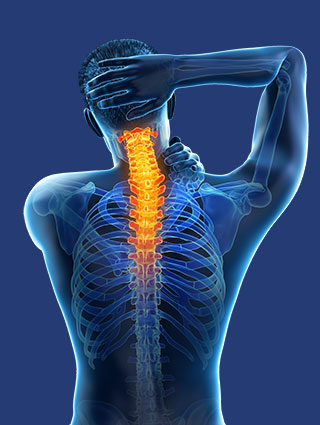 Vertigo is an unusual experience where you feel as though there is movement around you when there actually is none. For example, if you move your head suddenly and the room appears to be spinning, or if you have ever spun yourself around on a tire swing and stopped abruptly, only to continue feeling as though you are spinning, you have experienced vertigo. This condition is very common, and the false sensation of movement is due to a disruption of the role of the vestibular system in the inner ear (the most common cause) or the central nervous system (a less common cause). Vertigo in itself is not dangerous; however, the unpredictable attacks could happen while driving or standing on a high ledge, which could have serious outcomes.
Vertigo is an unusual experience where you feel as though there is movement around you when there actually is none. For example, if you move your head suddenly and the room appears to be spinning, or if you have ever spun yourself around on a tire swing and stopped abruptly, only to continue feeling as though you are spinning, you have experienced vertigo. This condition is very common, and the false sensation of movement is due to a disruption of the role of the vestibular system in the inner ear (the most common cause) or the central nervous system (a less common cause). Vertigo in itself is not dangerous; however, the unpredictable attacks could happen while driving or standing on a high ledge, which could have serious outcomes.
There are not a lot of answers out there for patients struggling with vertigo, even from those in the medical industry. One relatively consistent thing about vertigo is that it often follows a trauma to the head or neck. The trauma might be from a car accident, sports injury, slip and fall, or any other type of accident that impacted the neck or head.
When the head or neck is injured, it is common that a misalignment to the upper cervical spine will happen. This part of the spine is connected to the systems that help with balance and spatial orientation. This area is so important that a neck misalignment can disrupt blood flow to the brain and the ears, making it a primary suspect when vertigo cases develop originating from both the ears and the central nervous system.
Upper cervical chiropractors specialize in identifying and treating misalignments of the C1 and C2 vertebrae. Our examination process uses diagnostic imaging to locate exactly where and to what degree a misalignment has occurred. Then we use gentle adjustments, designed specifically to the needs of each patient.
When the misalignment is corrected, many patients experience improvements in symptoms such as vertigo. In fact, the condition may completely go away. In a case study observing 300 people with vertigo due to Meniere’s disease, 97% of the patients saw a dramatic improvement in their symptoms. On average, an improvement that was greater than 90% was documented.
If you or someone you care for is suffering from vertigo, especially if you have had a head or neck trauma, come in to see us at Advanced Spinal Care. We would love to share more ways that upper cervical chiropractic care can help you.
References:
Burcon M., Cervical Specific Protocol and Results for 300 Meniere's Patients, 6th International Symposium on Meniere's Disease. Nov 2010.
To schedule a complimentary consultation call our Redwood City office at 650-595-0500 You can also click the button below.
if you are outside of the local area you can find an Upper Cervical Doctor near you at www.uppercervicalawareness.com.
To schedule a complimentary consultation call our Redwood City office at 650-595-0500 or you can also click the button below.
If you are outside of the local area, you can find an Upper Cervical Doctor near you at www.uppercervicalawareness.com

